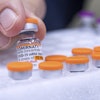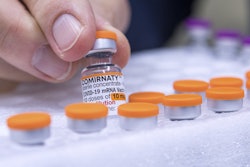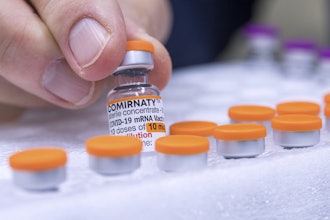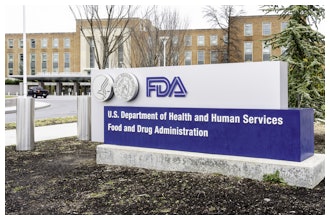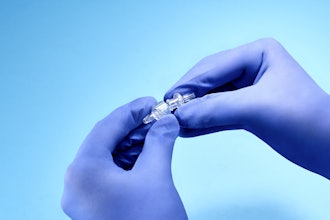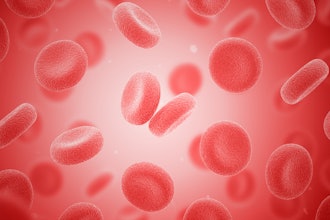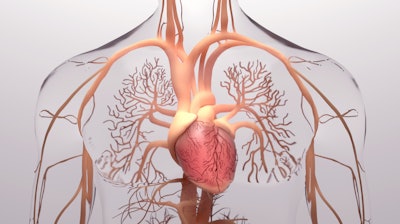
Boston Scientific announced positive six-month results from the ongoing pivotal MODULAR ATP clinical trial of the mCRM System, the first modular cardiac rhythm management (CRM) system that consists of the EMBLEM Subcutaneous Implantable Defibrillator (S-ICD) System and the EMPOWER Leadless Pacemaker (LP). As components of the mCRM System, the devices are designed to work together wirelessly to coordinate painless intracardiac anti-tachycardia pacing (ATP) therapy, provide rate-responsive bradycardia pacing support and to prevent sudden cardiac death without the risk of leads in the heart or under the sternum. Findings were presented at Heart Rhythm 2024, the annual meeting of the Heart Rhythm Society, and simultaneously published in The New England Journal of Medicine.
In addition to evaluating the safety and performance of the EMPOWER LP as a standalone pacemaker, the trial evaluated the ability of the EMBLEM S-ICD System to successfully communicate a wireless request to the LP to deliver ATP therapy. Findings from the trial met all pre-specified six-month safety and effectiveness endpoints, and demonstrated:
- A major complication-free rate of 97.5% after implantation of the EMPOWER LP.
- A communication success rate of 98.8% from the EMBLEM S-ICD System to the EMPOWER LP.
- An ATP success rate of 61.3%, and no patient requests for deactivation of ATP or bradycardia pacing due to pain or discomfort.
- Pacing capture thresholds, which indicate stable device fixation within the heart, of ≤ 2.0 V at 0.4 ms in 97.4% of patients.
Also presented at Heart Rhythm 2024 were results from the APPRAISE ATP clinical trial – a prospective, randomized, multicenter study evaluating ATP as a primary strategy for terminating ventricular tachycardias in primary prevention (PP) patients (i.e., those without a history of spontaneous sustained ventricular arrhythmias). The trial enrolled 2,626 PP patients indicated to receive an ICD at 134 centers globally and is the largest head-to-head trial of ATP in this patient group. In the study, patients were randomized 1:1 to standard transvenous-ICD therapy – ATP plus an ICD-delivered shock to terminate a ventricular tachycardia – versus shock only. Across five years of follow up, data demonstrated a statistically significant, but small absolute first all-cause shock reduction in only 1% of patients per year. Shock burden, or the number of shocks experienced by a patient, was not significantly different between the two arms, and the vast majority of patients in the ATP-plus-shock arm did not require ATP therapy.
The company anticipates U.S. Food and Drug Administration approval of the mCRM System in 2025.



